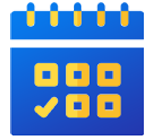- Study Destinations
- More


STATEMENT OF PURPOSE
A statement of intent (also called a statement of intent or a research statement) presents your interests and information to the approval committee. With research-focused programs, such as many PhDs and many master's degrees, your objective statement will focus mainly on your previous knowledge and programs. With most work-focused programs, your mission statement will focus primarily on how your adherence to this technology program is related to your previous experience, and how you will use the skills from this program in your future career.
EVIDENCE OF PREVIOUS EXPERIENCE AND SUCCESS
A good statement of intent to graduate will also reflect the programs you have already achieved. They are looking for applicants who will be able to follow their research / professional plans! You'll need to provide proof of how well your domain fits the program and your interests in the industry. You will probably discuss your undergraduate studies and any technical experience you have. But make sure you use specific, obvious examples. You can draw on your ideas, great projects you have used, papers you have written/published, presentations you have given, mentors you have worked with, and so on. This gives admission committees concrete proof that you are eligible to graduate!
POWERFUL WRITING
The last important piece of a strong statement of purpose or letter of intent is to write firmly. Writing skills are essential for all degree programs. You are required to show that you can clearly and effectively articulate your ideas in a logical flow. Besides, you should show that you can write in a descriptive but concise manner. The statement of intent should not be longer than two pages, with or without the limit of difficult words. Admissions Committees for human programs may be more focused on writing style than admissions officers for STEM programs. But even in the areas of quantity and science, written writing skills are an important part of graduate school. Therefore, a strong statement of intent will always be written successfully. You will see this in our statement of intent with samples of graduate schools.
WHY IS THE STATEMENT OF PURPOSE IMPORTANT
Statement of Intent (SOP) will finalize the decision for your application. It assists the admissions committee to evaluate your lifestyle, career goals, beliefs, academic knowledge, and perspective. It gives you an opportunity to present your purpose to the committee and the reasons why they should choose you over other applicants. A good SOP works well on weak subject profiles where you can highlight your goals and aspirations.
What should be included in the Statement of Purpose?
There are several key elements to your goal statement. These include:
- Personal domain
- Financial center
- Course details
- Technical experience (full-time / part-time, optional)
- Immediate and long-term goals
- Reasons why you wish to study at this institution
- Reasons for taking an interest in the selected field
- About additional academic activities
- Published works, if any
- Submitted documents, if available
- Interests, hobbies
FINALIZING YOUR SOP
In the last section you should briefly explain your long-term career goals. Be specific and specific when writing this. Also, notice how this differs slightly from the current goal from the first phase. In the first paragraph, you talk about what you want to do right now, in other words, the next goal you want to achieve.
Up to this point, you have talked about the past and the present. This is important in showing how well you prepare for the program right now. From the point of view of admissions, they want to select students with a long-term vision related to the program. The reason is that it shows that you see yourself clearly as applying what you are going to learn to truly grow and contribute to your field of study. Why would an admissions manager want to accept a student who has no clear idea of how they want to expand their field? It makes no sense to choose a student who does not have a clear long-term goal than a student does.
Ready to get started? Book a FREE appointment to discuss your study options in Germany.

